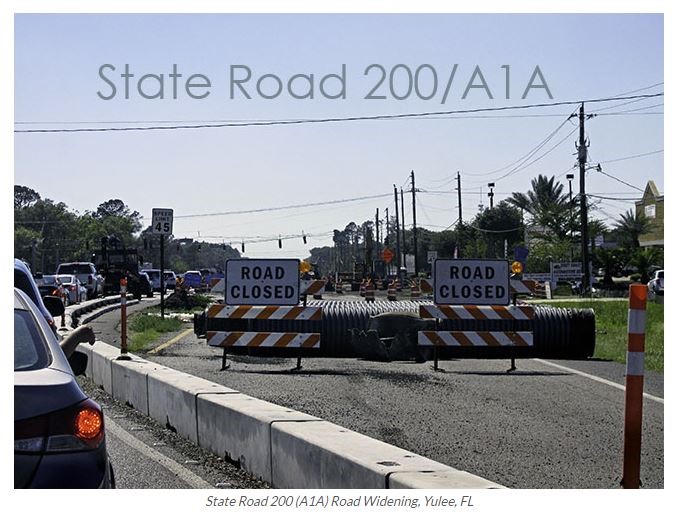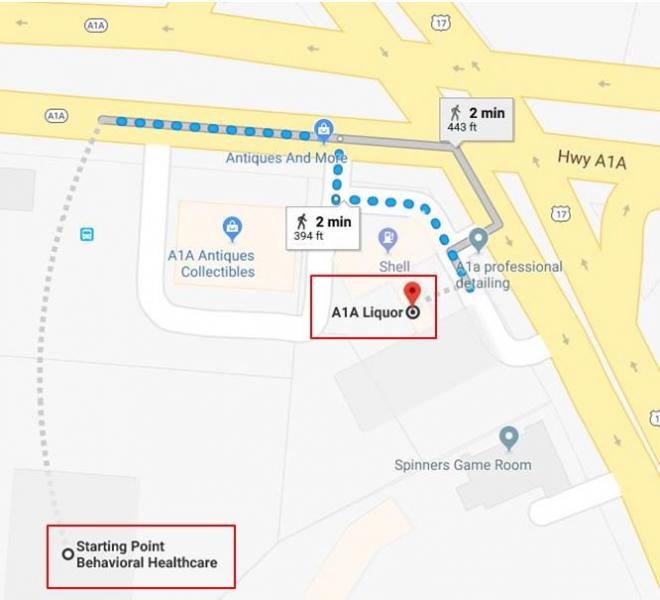Seeking Rat Park: Connection versus Depression
 When I drove down Highway 17 into Yulee, Florida at the end of August, I saw the first signs of challenges that I would face both personally and professionally during my service term as a mental health and substance abuse care coordinator. As you enter Yulee, a 13,000-resident town lodged on the highway between Jacksonville and Amelia Island, you run into a sign reading “midtown” surrounded by a few small businesses, a gas station, and a liquor store adjacent to the county’s primary substance abuse clinic, Starting Point Behavioral Healthcare.
When I drove down Highway 17 into Yulee, Florida at the end of August, I saw the first signs of challenges that I would face both personally and professionally during my service term as a mental health and substance abuse care coordinator. As you enter Yulee, a 13,000-resident town lodged on the highway between Jacksonville and Amelia Island, you run into a sign reading “midtown” surrounded by a few small businesses, a gas station, and a liquor store adjacent to the county’s primary substance abuse clinic, Starting Point Behavioral Healthcare.
I grew up in a fairly urban, cosmopolitan area of Atlanta, Georgia, so I was unprepared for the reality of relocating to a developing highway town near the Florida-Georgia border. Where I grew up, I had access to a wide variety of restaurants, concert venues, and cultural events, some of which were within walking distance. I could safely walk or run through my neighborhood or to nearby parks with well-maintained trails. I hesitated slightly to accept a National Health Corps position in Yulee knowing that most of the Corps would be living more centrally in Jacksonville, but I knew that taking on this challenge would be an opportunity to expand my comfort zone and to understand the health needs of an unfamiliar population.
The extreme social and economic stratification within the county makes for an unusual situation in terms of city development and public health. Most people from outside the area hear of Amelia Island and envision golf courses, resorts, and pristine beaches. This description fits the south end of the island, which is dominated by gated neighborhoods alongside the Ritz-Carlton and Omni resorts. As you travel north on the island, the houses gradually become more modest, assuming a small-town aesthetic, and you reach the city of Fernandina Beach. As a tourist, it is easy to enjoy the southern charm of historic downtown and to overlook the areas where development has fallen short. Along Old Nassauville Road, you’ll find plantation-style mansions just down the street from forgotten-looking properties where residents live in trailers and campers.
Yulee, which lies inland, is comprised of one major road lined with chain stores like Publix, Target, Home Depot, and Lowes, along with almost every imaginable car dealership. The town is completely un-walkable. The meager “bike line” is essentially unusable due to the constant road construction, and the few existing apartment complexes rest just off State Road 200, with no sidewalks to connect them to safe outdoor spaces. The massive businesses on the highway hide the unpaved roads and isolated neighborhoods that are home to many of the clients I serve.
 As I gradually transitioned from a visitor to a local of Nassau county, I began to see why health problems like diabetes, alcoholism, and depression permeate the community. While there are numerous grocery and outlet stores in Yulee, someone living several miles off the main road would need a personal vehicle to access these resources. Some of the streets farthest from the highway do not have reliable cell phone service. Without sidewalks, parks, or walkable trails, there are few safe places for residents of Yulee to exercise outdoors, unless they have the means to travel six or seven miles to the beach or to the bike path on the south end of the island. These barriers to wellness are obvious to any healthcare provider, but as a resident of Yulee myself, I have realized the deeper problem with life in this town -- lack of social connection, meaningful activities, and entertainment. I may be predisposed to notice these challenge because of my childhood in a vibrant, culturally diverse city, but Yulee stands out to me in that it offers few social gathering places other than a few chain restaurants. The layout of the town predisposes individuals and families to remain isolated from neighbors, and the trajectory of development seems only to be making this worse. Fernandina Beach has a few small theatres and a quaint downtown area, but bars still comprise the most affordable attraction and gathering spot for local residents.
As I gradually transitioned from a visitor to a local of Nassau county, I began to see why health problems like diabetes, alcoholism, and depression permeate the community. While there are numerous grocery and outlet stores in Yulee, someone living several miles off the main road would need a personal vehicle to access these resources. Some of the streets farthest from the highway do not have reliable cell phone service. Without sidewalks, parks, or walkable trails, there are few safe places for residents of Yulee to exercise outdoors, unless they have the means to travel six or seven miles to the beach or to the bike path on the south end of the island. These barriers to wellness are obvious to any healthcare provider, but as a resident of Yulee myself, I have realized the deeper problem with life in this town -- lack of social connection, meaningful activities, and entertainment. I may be predisposed to notice these challenge because of my childhood in a vibrant, culturally diverse city, but Yulee stands out to me in that it offers few social gathering places other than a few chain restaurants. The layout of the town predisposes individuals and families to remain isolated from neighbors, and the trajectory of development seems only to be making this worse. Fernandina Beach has a few small theatres and a quaint downtown area, but bars still comprise the most affordable attraction and gathering spot for local residents.
In a famous experiment conducted at Simon Fraser University in the 1970s, scientists studied drug addiction using rats housed in two different conditions. In the first group, individual rats were isolated in empty cages with no stimulation or opportunity for exercise. In the second group, rats were housed together in a large cage -- called Rat Park -- where they could socialize, run on wheels, and climb around in a variety of spaces. Both groups of rats were offered plain water and water laced with morphine. As you might expect, the caged rats drank the morphine water almost exclusively and quickly became addicted, but those in Rat Park much preferred the plain water, even when they occasionally sampled the morphine. It may be extreme to compare a small town in Florida to an isolated rat cage, but applying this perspective to my lived experience in Nassau County has helped me understand how our environment influences our health more than we ever could imagine.
The residents of Nassau county are some of the kindest and most welcoming people I have ever met. I often wish that I could improve their environment and enhance their health more drastically than I realistically can as a care coordinator. I have learned so much from this population, and I hope that my contributions as a National Health Corps member have lasting impacts on the quality of life in this community.
This blog post was written by NHC FL AmeriCorps member, Anna Dowling.
Anna serves at Starting Point Behavioral Health In Nassau County as a Care Coordintator.